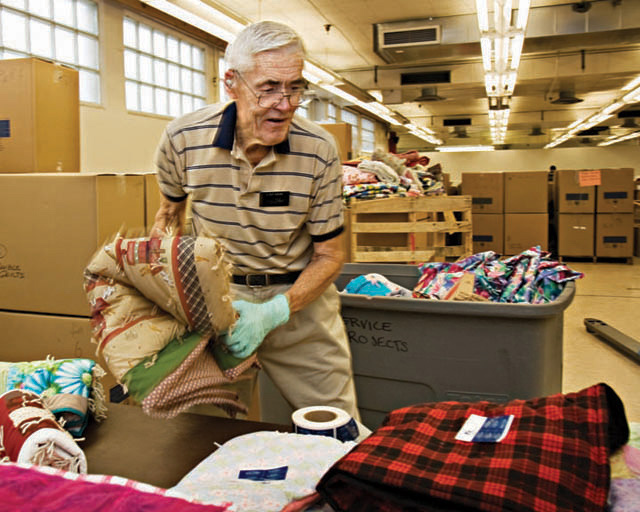One of the things Mormons are known for is their interest in long-term food storage. The reasons for this are many. In fact, the reasons extend back hundreds if not thousands of years.
 Most people have heard of Joseph in the Bible. Remember the one sold by his brothers to be a slave (this was after they nearly killed him, but decided against it). Eventually Joseph served under the Pharaoh himself, overseeing a broad food storage program. The food storage program evolved because the Lord had revealed to Pharaoh in dreams (which Joseph interpreted) that a famine was coming.
Most people have heard of Joseph in the Bible. Remember the one sold by his brothers to be a slave (this was after they nearly killed him, but decided against it). Eventually Joseph served under the Pharaoh himself, overseeing a broad food storage program. The food storage program evolved because the Lord had revealed to Pharaoh in dreams (which Joseph interpreted) that a famine was coming.
Eventually the famine came and because of Joseph’s righteousness and wise provident advice, the Pharaoh was able to sustain not only his family and household, not only his kingdom, but was also able to sell food to neighboring countries and tribes. This prospered Pharaoh greatly and saved thousands if not millions of lives.
The Lord is a loving God. He does not want His children on this earth to suffer. It is why He gives the commandments He does. Those commandments exist in the scriptures and it would be greatly advisable to study His words. This way you, like Joseph, can wisely live after provident ways, being thereby sustained when difficult times come.
The Lord has spoken throughout the ages through his prophets of the difficult times that will come prior to the coming of Jesus Christ. This Second Coming (as it is called) will occur after many acts of wickedness have been perpetrated by the wicked against the innocent. Additionally, acts of nature will convene, resulting in great famines and turbulent weather patterns. Society, we read, will be most unstable – not because of God, but because mankind will have turned a deaf ear to Christ’s teachings.
It is not difficult to imagine such a day, for in many ways it might seem that these times are already upon us. So if we want to be well-taken care of during difficult times like those experienced in Pharaoh’s time, it seems we should be
Our modern-day prophet, President Gordon B. Hinckley has stated:
“…life is fragile, peace is fragile, civilization itself is fragile. The economy is particularly vulnerable. We have been counseled again and again concerning self-reliance, concerning debt, concerning thrift. So many of our people are heavily in debt for things that are not entirely necessary.
“When I was a young man, my father counseled me to build a modest home, sufficient for the needs of my family, and make it beautiful and attractive and pleasant and secure. He counseled me to pay off the mortgage as quickly as I could so that, come what may, there would be a roof over the heads of my wife and children. I was reared on that kind of doctrine. I urge you as members of this Church to get free of debt where possible and to have a little laid aside against a rainy day….
“I cannot forget the great lesson of Pharaoh’s dream of the fat and lean kine and of the full and withered stalks of corn.
“I cannot dismiss from my mind the grim warnings of the Lord as set forth in the 24th chapter of Matthew….” (“The Times in Which We Live,” President Gordon B. Hinckley, Ensign, Nov 2001, 72).
Just what is contained in Matthew 24? Click on Matthew 24 and read of the great calamities that Christ foretold that would happen before His Second Coming. Read and then determine through prayer and pondering what you can do to get your family safely ready for what is to come. Long-term food storage is an important part of that readiness.
For more information that is free and useful, visit the Provident Living website.


